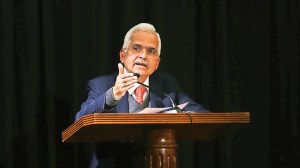How to make China even richer
In 1940, nine years before his Communist Party seized power, Mao Zedong set out his plans for a 8220;new China8221;.

In 1940, nine years before his Communist Party seized power, Mao Zedong set out his plans for a 8220;new China8221;. The republic would, he said, take certain necessary steps8230;to confiscate land from rural landlords. Under the principle of 8220;land to the tiller8221;, it would then 8220;turn the land over to the private ownership of the peasants.8221; If only things had turned out this way.
The 8220;necessary steps8221; involved widespread slaughter. Hundreds of thousands, maybe millions, of landowning rural residents and their families were executed or beaten to death by fellow villagers. The peasants got their small parcels of land, but not for long. By the late 1950s, private land ownership had been eliminated and peasants had become property-less members of 8220;People8217;s Communes8221;. It was an upheaval that, along with bad weather and a frenzied attempt to catch up with American levels of industrial production, contributed to millions more deaths in a nationwide famine. As our survey describes, China has yet to undo the damage. A few years after Mao8217;s death in 1976, the People8217;s Communes were dismantled. Under Deng Xiaoping, agricultural production soared as for the first time in 30 years peasants were allocated but not given full ownership of plots of land to farm independently. This marked the start of the economic transformation that today holds the world spellbound. But it is the prosperity of urban China that mesmerises foreign businesses. Since its boom in the early 1980s, the countryside has lagged ever further behind.
Deng kept in place two pillars of the Maoist rural order: collective land ownership and an apartheid system that barred rural residents from moving to the cities. The latter has begun to erode, due to the need for cheap labour to sustain a manufacturing boom. But the former remains firmly in place. Now is the time to revive Mao8217;s vision of a new landowning order. This would ease rural strife, fuel growth and help develop the genuine market economy the leadership claims to want. Giving peasants marketable ownership rights, and developing a legal system to protect them, would bring huge economic benefits. If peasants could mortgage their land, they could raise money to boost its productivity. Ownership would give them an incentive to do so. And if peasants could sell their land, they could acquire sufficient capital to start life anew in urban areas. This would boost urban consumption and encourage the migration of unproductive rural labour into the cities8230;
Excerpted from an editorial in the March 23 issue of 8216;The Economist8217;
- 01
- 02
- 03
- 04
- 05































